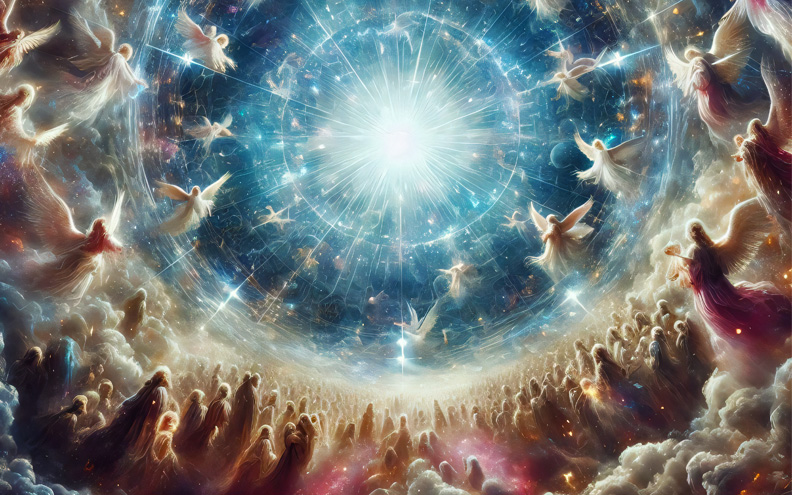Yom Kippur: The Path to Cleansing Through the Sacrifice of the Messiah

Yom Kippur, the Day of Atonement, stands as one of the most significant holidays in Jewish tradition. Deeply rooted in Scripture, this day carries profound prophetic meaning for those of us who believe in Yeshua, the Messiah. Yom Kippur is far more than a ritual of cleansing; it is a powerful representation of the atonement we received through our Lord’s ultimate sacrifice.
The primary mention of Yom Kippur appears in the book of Leviticus. It was a day when the high priest would enter the Holy of Holies with sacrificial blood to cleanse the people of their sins. Leviticus 16:29-30 describes this sacred observance: “This is to be a lasting ordinance for you: On the tenth day of the seventh month you shall deny yourselves and not do any work—whether native-born or a foreigner residing among you—because on this day atonement will be made for you, to cleanse you. Then, before the Lord, you will be clean from all your sins.”
Yom Kippur marked the culmination of the ten Days of Awe, beginning with Rosh Hashanah. During this time, the people of Israel prepared themselves for purification before the Lord, acknowledging their sins and crying out for mercy. It was a day of strict fasting, repentance, and humility.
For those of us who believe in Messiah Yeshua, Yom Kippur reveals an amazing picture of God’s redemption plan. The high priest offering sacrifices for sins, and the sacred act of cleansing through sacrificial blood, symbolize the Messiah who became our eternal High Priest and sacrifice simultaneously.
Hebrews 9:11-12 powerfully captures this truth: “But when Christ came as high priest of the good things that are now already here, he went through the greater and more perfect tabernacle that is not made with human hands… he did not enter by means of the blood of goats and calves; but he entered the Most Holy Place once for all by his own blood, thus obtaining eternal redemption.”
Yeshua became the perfect sacrifice, and His blood cleansed us forever. On the cross, Yeshua fulfilled the role of the earthly high priest on Yom Kippur, entering not an earthly Holy of Holies, but the heavenly one, reconciling us to God for eternity.
Yom Kippur is a foreshadowing of the greatest event in human history – Yeshua’s sacrificial atonement. On Golgotha, what the law and prophets spoke of came to pass. Yeshua’s sacrifice forever changed the course of history, making our reconciliation with God possible. On this day, we remember the immense price of our salvation. We were not saved by our own works, fasts, or prayers, but solely by His invaluable blood.
Isaiah 53:5-6 prophetically declares: “But he was pierced for our transgressions, he was crushed for our iniquities; the punishment that brought us peace was on him, and by his wounds we are healed. We all, like sheep, have gone astray, each of us has turned to our own way; and the Lord has laid on him the iniquity of us all.”
As we reflect on Yom Kippur, we see not just an ancient ritual, but a prophetic signpost pointing to the cross of Golgotha. Yeshua bore the sin of the entire world, fully completing the Father’s redemptive plan.
While Yeshua’s sacrifice is perfect and complete, Yom Kippur reminds us of the importance of maintaining a constant state of repentance and humility before God. We are called to confess our sins and pursue righteousness, not because we can cleanse ourselves, but as an act of acknowledging God’s grace in our lives.
First John 1:9 offers comfort: “If we confess our sins, he is faithful and just and will forgive us our sins and purify us from all unrighteousness.”
Repentance is not a one-time action but a continuous process where we recognize our need for God and strive for spiritual purity, relying entirely on His grace.
Yom Kippur is also a time of reconciliation. Yeshua calls us not only to seek forgiveness from God but to reconcile with one another. A crucial element of the holiday is forgiving all grievances and conflicts, ensuring that no one remains in bitterness or estrangement.
Matthew 6:14-15 underscores this principle: “For if you forgive other people when they sin against you, your heavenly Father will also forgive you. But if you do not forgive others their sins, your Father will not forgive your sins.”
Yom Kippur teaches us humility and forgiveness. When we forgive others, we reflect God’s character, which is abundant in mercy.
Brothers and sisters, Yom Kippur reminds us of Yeshua’s tremendous sacrifice, who offered Himself so that we might be saved.
